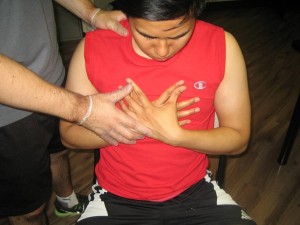Gastroesophageal reflux disease (GERD) develops over time where the stomach contents move back into the esophagus. The condition can cause undesirable symptoms or even lasting issues.
The condition can lead to lingering irritation and swelling of the esophagus. After some time, it might alter the lining of the esophagus. Remember that any changes in the lining can increase the risk for esophageal cancer.
What is the cause?
When food and liquids are swallowed, they move down via the esophagus and into the stomach. There is a muscular ring around the inferior point of the esophagus that opens to allow the food to move into the stomach.
Normally, this muscle closes and prevents the stomach contents from moving back into the esophagus. If the muscle is weakened or too relaxed or there is high pressure driving against it, the muscle does not remain closed and allows the stomach acid and food to move back into the esophagus. The acid can irritate the esophagus and trigger symptoms.
The muscular ring might function erratically if:
- Overweight
- Wearing constricting clothes that push on the stomach
- The individual has hiatal hernia
- Lying down right after eating
- Eating large amounts at a single time
What are the signs?

The usual sign of gastroesophageal reflux disease is heartburn. This is described as warm or burning discomfort in the chest after eating.
If diagnosed with GERD, the heartburn arises frequently or severe enough to disrupt with daily life.
Other signs that might be present include:
- Difficulty swallowing
- Sour or bitter taste in the mouth
- Wheezing, chest tightness and shortness of breath
- Intense pain or pressure beneath the breastbone
- Unexplained dry cough
- Raspy or hoarse voice
The heartburn generally arises 30-60 minutes after a large meal, especially if the individual bends down, lies down or lifts something after a meal.
Management of gastroesophageal reflux disease
The objective of treatment for gastroesophageal reflux disease is to control the reflux. The doctor might recommend the following:
- Lifestyle modifications such as cessation of smoking, dietary changes or cutting down weight. If the individual consumes alcohol, the doctor might suggest limiting the intake or cessation.
- Medications to reduce the acid in the stomach.
